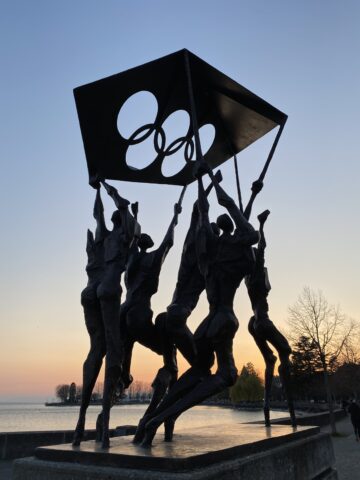Right to be heard: a party must draw the Arbitrator’s attention to the specific argument during the proceedings
4A_170 / 2017 & 4A_194 / 2017 , Judgment of May 22, 2018, Club L. v. FECAFOOT and FECAFOOT v. Club L. Appeal against the CAS award rendered on February 27, 2017 (CAS 2016/A/4415)
The Facts
The case before the CAS involved a dispute between a Cameroonian football club playing in the first division (Etoile Filante de Garoua, the Club) and the national football federation FECAFOOT. Within a larger context of difficulties facing FECAFOOT since its 2013 elections and a series of related CAS awards, the Club filed an appeal to the CAS (TAS 2016/A/4415) requesting, inter alia, the reinstatement of the Executive Committee until the final elections. In a preliminary award on jurisdiction and admissibility, the Sole Arbitrator held that the CAS had jurisdiction ratione materiae, but the appeal was inadmissible for being late.
Time Limit to Appeal to the CAS (Art. R49 CAS Code)
The entire debate before the Federal Tribunal related to the time limit to appeal to the CAS. According to Art. R49 of the CAS Code, in the absence of a time limit in the rules of the federation, the time limit for appeal is twenty-one days from the receipt of the decision appealed against. The Sole Arbitrator found that there was a contradiction in the relevant rules and statutes of the federation but the rule in force at that time provided for 20 days, and, therefore, the appeal was inadmissible for being filed after 21 days.
Before the Swiss Federal Tribunal, the Appellant club invoked a violation of its right to be heard, erroneous finding on jurisdiction and a violation of public policy (which was swiftly dismissed and does not merit any further mention).

Time Limit to appeal and Violation of the Right to be Heard: Conditions
The only relatively interesting point from the angle of the violation of the right to be heard is the need to draw the attention of the arbitrator to the specific piece of evidence or argument made during the proceedings. In this respect, the Federal Tribunal found that it was not sufficient to file the CAS award in which the Panel had admitted a time limit of 21 days, but the Appellant had to draw the attention of the Arbitrator to the specific argument raised. Moreover, the appellant’s allegation that the operative part of the decision indicated 21 days to appeal to the CAS could not be traced in the award under appeal.
Lack of Jurisdiction “ratione temporis” or Inadmissibility?
In an argument raised by the Appellant from the angle of jurisdiction ratione temporis, the Federal Tribunal left, once again, the question whether the late filing of the appeal entails the inadmissibility or the dismissal for lack of jurisdiction open (5.2).
Legal Interest of the Appeal filed by FECAFOOT
As regards the appeal filed by FECAFOOT (that the Federal Tribunal decided to join to the appeal filed by the Club), it was found that FECAFOOT lacked legal interest because the argument raised (the lack of legitimacy of the CAS Award and the detrimental effect of its publication in Cameroon) could not be found in the arbitrator’s findings and was thus inadmissible. In any event, such argument was insufficient to establish the legal interest of this association in appealing against the disputed award.
Note: the full judgment is available in French at the website of the Swiss Federal Tribunal www.bger.ch. The English translations of the international arbitration decisions rendered by the Swiss Federal Tribunal (from French, German and Italian) are available on the website www.swissarbitrationdecisions.com, operated jointly by Dr. Despina Mavromati and Dr. Charles Poncet as a service to the international arbitration community.





